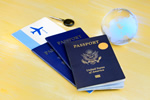Getting the best salary when offered an overseas job

Getting the best salary when offered an overseas job
Examining your present salary in the currency of your country of residence and comparing its value in the currency of your potential new base is the first step. A side by side comparison of actual financial value will help in determining your needs as regards acceptable take home pay in your new overseas job and how it compares with the average cost of living in order to maintain your present standards. An essential part of your decision will be the estimating of expenses to be borne by your new employer and those you’ll have to cover.
For example, the cost of selling your present home, packing and shipping expenses as well as costs involved in moving expenses for your spouse and other family members should all be considered. In addition to the major expenses related to the actual move, considering a comparison between the two countries’ day-to-day living expenses such as clothing, food, transportation, schooling, running a car, utilities and entertainment is necessary. The result will either please you or shock you, but at least you’ll have a solid assessment of how much more – or possibly less - you’ll need to earn.
At this stage, you’ll be able to calculate how much you’ll need to negotiate in order to achieve a higher standard of living than in your present job. An online search for upscale prices in your offered location will help, as will comparing the prices with those in similar stores in your present country.
Understanding costs as well as the processes necessary for insurances and visas in addition to looking at current tax rates are the final step in a comprehensive valuation of your present financial state and that in your new country. Checking with an accountant to make sure all your bases are covered, especially as regards tax liabilities and banking procedures is a must. Once you’ve completed your evaluation, you’ll be in the perfect position to decide whether the salary you’ve been offered is a good deal or whether you should negotiate an immediate increase!
Related Stories:
- Tips on a trouble-free relocation as an expat overseas - July 20, 2020
- Expats in Malaysia still banned from overseas travel - July 17, 2020
- China hits its expats with 45 per cent tax on overseas earnings - July 15, 2020
- Saudi extends visas and permits of expat professionals trapped overseas - July 14, 2020
- The new world is coming for jobless expat professionals - June 26, 2020
- Expats in Singapore fearing for their jobs as redundancies soar - June 11, 2020
- Low Prague job security encourages expats to diversify - May 27, 2020
- Is expat travel overseas dead in the water? - May 19, 2020
- Brit expats overseas caught in coronavirus and Brexit turmoil - May 18, 2020
- Jobless expats in UAE get repatriation flights paid by employers - May 6, 2020
Latest News:
- Tips on a trouble-free relocation as an expat overseas - July 20, 2020
- Expats find peace in the covid-19 refuge of Dahab town - July 20, 2020
- Is Kuwaitization the unintended result of the oil price crash? - July 20, 2020
- Expats unhappy abut changes to Korean points-based visa system - July 17, 2020
- Chiang Mai and Bangkok no longer bargain locations for expats - July 17, 2020
- Expats in Malaysia still banned from overseas travel - July 17, 2020
- Vietnam welcomes expats to its safe, affordable lifestyle - July 16, 2020
- Asian tiger economies reach out to expats in Hong Kong - July 16, 2020
- HSBC Asia to cut back on internal expat relocations - July 16, 2020
- Tips on integrating for newly-arrived expats - July 15, 2020


